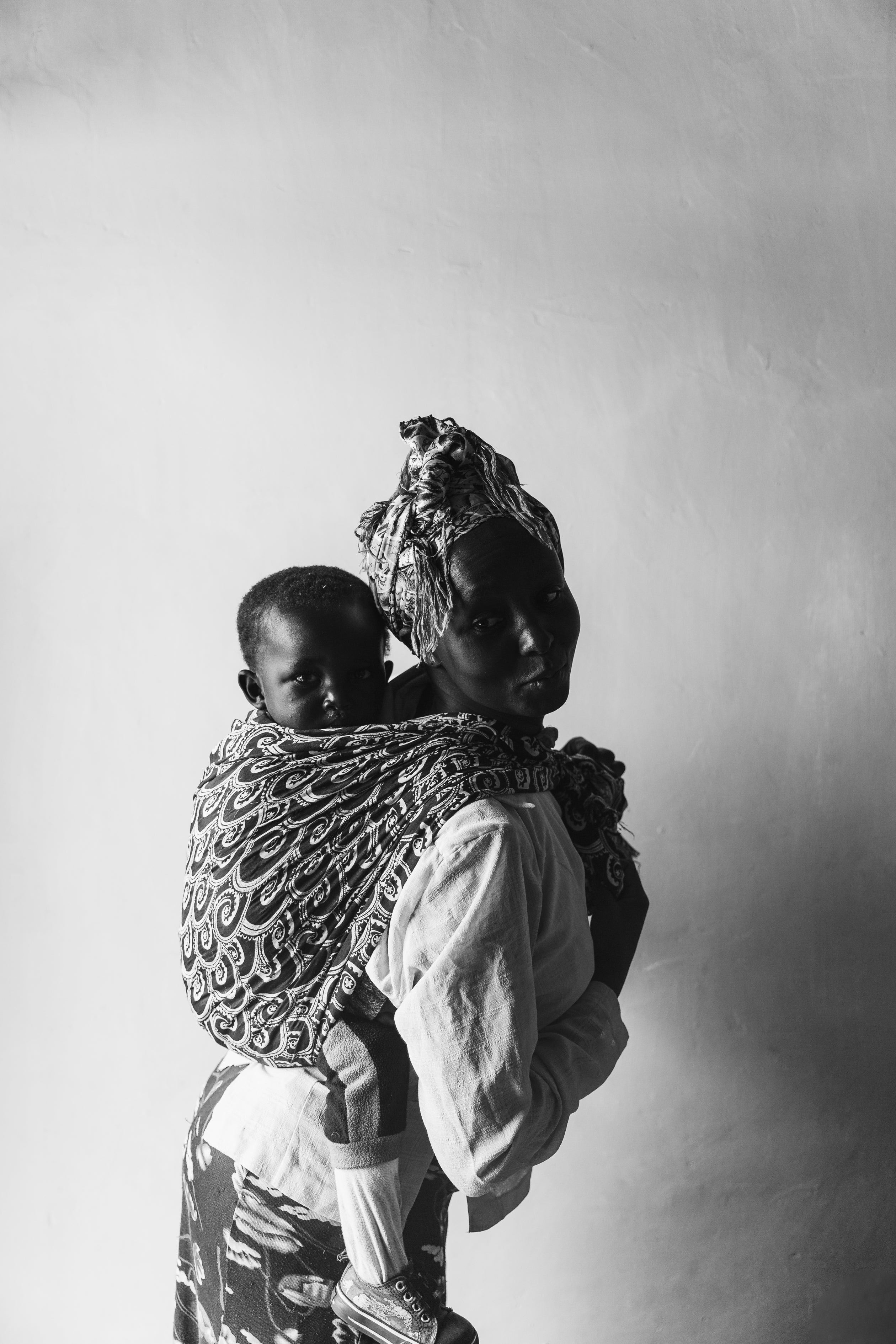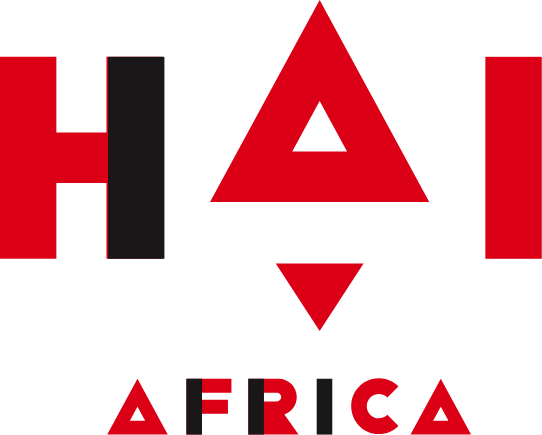
What can the female protagonism of the Kabira community tell us?
The prominence of women from the Kabira community in raising and supporting their children combines care practices with political action.
However, this female role is not at all romantic: it is a social construction marked by violence of all kinds.
However, these forms of action transcend the individual limits of their lives and are transformed into political and collective action — which are changing the reality of their lives.
It is from this everyday life that women strengthen and strengthen each other. These practices kickstart other types of female autonomy generation, especially for the next generations.
What is female protagonism?
The meaning of “ protagonism ” is a person's ability to take actions that influence the outcome of a situation.
That is, it is the ability to face and solve the challenges that arise, without waiting for someone to do something for you.
So, as the name itself suggests, female protagonism comprises situations in which women take responsibility (and the consequences) for their own actions and for the situations they experience.
But why is female protagonism not always what it seems?
When talking about female protagonism, it is likely that situations in which women leave the supporting role and assume the main role of the story itself come to mind.
It is true that these stories often have happy endings. They are narratives of women who abandon situations of violence, who question abusive patterns, who free themselves in search of a better life.
However, female protagonism is not always a choice — much less does it only refer to healthy situations .
Just think, for example, of the number of women who, with no other way out, have to take on the maintenance and raising of their children alone.
Or the number of women who take the lead in initiatives within their neighborhoods and communities to overcome a crisis situation. And why is that?
History shows that this conversation is not new. Women are the people who feel, faster and stronger, the consequences of times of crisis within their homes.
During the Military Dictatorship, in the 1970s, the Cost of Living Movement was created, led by women who felt the consequences of high inflation in their families' meals.
It is the same situation of women who take over solidarity popular kitchens and produce hundreds of meals.
Among so many others, these are examples that prove the political force that is born from women's daily experiences, especially within class and race cutouts.
That is, the prominence of women in all practices that combine care with political action. However, this female role is not at all romantic: it is a social construction.
The female role in the Kabira community in Kenya
Since the founding of Hai África, in 2015, the social and political scenario was already very clear, especially in relation to the existence of numerous forms of violence — some more clear and perceptible (such as hunger) and many others more subtle.
The reality of the male and female students' families was mostly the same: women who, faced with parental abandonment, raise and support their children alone.
The life history of these women does not escape what the statistics indicate: single mothers, illiterate or semi-illiterate, solely responsible for the household income.
And more: most of them have already suffered ( or still suffer ) some kind of domestic and sexual violence.
The context of these women knocked on the door of Hai África, as they needed to find alternatives for these situations that directly influence the lives of babies.
The life scenario of these women needed to change to ensure that the babis were able to feed themselves on the weekends and that they could return to classes on Mondays nourished for another day of school.
These alternatives comprise the pillars of female empowerment of the United Nations Organization for Women's booklet and have made the women of the Kabira community fundamental to the effectiveness of Hai's work.
The empowerment vision, at this point, does not only consider the empowerment, but also the autonomy and emancipation of women (individually and collectively).
Female protagonism is directly related to the type of empowerment that Rodrigo Rossi and Giselle Meirelles described in the book “ Problematizing the concept of empowerment ”:
“[empowering is the] process in which individuals, organizations and communities acquire resources that allow them to have a voice, visibility, influence and capacity to act and decide about their own lives”.
Breasts and Principle 7: Promoting Equality through Community Initiatives and Advocacy
A group of women are gathered in a small room. All are seated, most on the floor. While some sew colorful fabrics, some braid with the help of their feet and others sand to finish off the carefully designed pieces.
Next to them are their children, who continue to play or sleep in colorful fabrics tied behind their backs.
This is the routine of our mamas, a name affectionately given to the women who work making products for the Hai África store: Loja das Mamas.
It is they who, in the midst of a series of daily adversities, find ways to guarantee their children's subsistence: whether by making accessories or selling vegetables, eggs and other foods on the streets to supplement the family income.
Loja das Mamas, in partnership with Project Três, was (and is) a collective construction that came true to impact the lives of these women.
Although there is a scenario of scarcity and adversity, our breasts are synonymous with resilience and courage.
Author Isabel Maria Casimiro tells us in her book “ Peace on Earth, War at Home ” that women resist and reinvent themselves based on their survival needs.
The author even called this phenomenon “ popular feminism ” — which is the process by which women are able to seek immediate answers to the objective needs of survival, even without being aware of the feminist struggle that they themselves are leading.
Teachers and collaborators and principle 4: promoting the education, training and professional development of women
The lesson planning is finalized, the classroom organized, the materials that will be used too, the menu is already defined and in a few minutes the babies will arrive for another day of classes.
This whole routine at the Hai Center has the participation and protagonism of five women: Leah, Anitte, Jane, Fanice and Violet.
These are the women who make working with our babies a reality, whether in the classroom, cleaning, or preparing snacks served to them with great care and love on a daily basis.
Our teachers: Leah, Anitte, Jane, are women who were born and live in the Kabiria community.
Each of them arrived at Hai Africa at different times, but they have similar characteristics: dedication to the work they do and the affection with which they face the formation of our babies.
All have training in Waldorf Pedagogy and specialization in Childhood Psychology, funded by Hai so that they could improve.
This is what our teacher Leah Kathambi said:
" I couldn't go to college, but I had the dream of attending one. It was, through Hai, that I managed to go to college. I won in life, I feel ” .
What Leah reports about the difficulty of attending college is a reality in Kenya, where the enrollment of women represents almost half of the number of men.
Furthermore, when they manage to enter formal education, the school dropout rate for women is very high.
According to data from the United Nations, Kenyan women in urban areas have an average of 11 years of study, while in rural areas they only have 2 years.
The excerpt taken from the report to Oxfam “ Girls’ education in Africa ” points out the factors that build this panorama:
“ Girls' educational development, for example, varies greatly because of cultural, economic and geographic factors. Religion, distance from urban centers, marriage practices, migration patterns, disease burden, seasonal work demands and cash flows, among other factors, contribute to differences in enrollment and retention of girls within the same country .”
Another sad reality is menstrual poverty, which causes many girls to give up their studies during puberty. In addition to the taboos surrounding women's health, shame predominates the theme and causes the subject to grow surrounded by myths and superstitions.
But for Fanice and Violett, their children's reality may be different, since beyond schooling they are getting to know a different world:
“ I was a single mother. How to get a place at school? It was very difficult. But I'm happy because my daughter is at school , ”says Fanice Mukoma.
The similar report is from Mary Wanjiku, mother of two of our babies and resident of the Kabiria community: “ You gave my son education. I'm happy, the way I was raised...with my children it won't be like that. That's what I want, I want my children to be educated ”.
How to help female protagonism with Hai África?
Another way to help promote women's empowerment is to contribute to Hai África's actions. Hai África is a non-profit organization that was born in 2015 after a volunteer trip to Africa.
On May 4, 2015, in a small house in Kabiria (a region on the outskirts of Nairobi, the capital of Kenya), founder Mariana opened Hai's doors to provide meals and creative activities for 13 children from the community — the maximum number welcomed in her initial budget.
Currently, Hai is a center that is part of the transformation of the Kabiria community, promoting the development of women through new professional training and of children through humanized education and healthy nutrition. Hai also supports the local economy by making all of its purchases from the community's own businesses.
Over the years, Hai África has become a center that serves more than 40 children (our “babies”), has 6 local employees, generates income and gives opportunities to 15 women (affectionately known as ''mamas''), finances the education of 3 teachers and the continuing education of 29 children in primary school.
If you are interested in Hai's story, you can help in the following ways:
- You can make cash donations and sponsor children from R$10. The donation is secure and credited monthly.
- You can donate clothes, shoes, furniture and household items or buy them at the Hai bazaar.
- You can volunteer at Hai and be welcomed with open arms and encouraged to explore your unique abilities.
- You can invite Hai to join your event and share stories of impact and transformation.
- You can become a Hai partner organization and unify efforts to achieve common goals.
So, how can you help boost the transformation that Hai África has already started?


